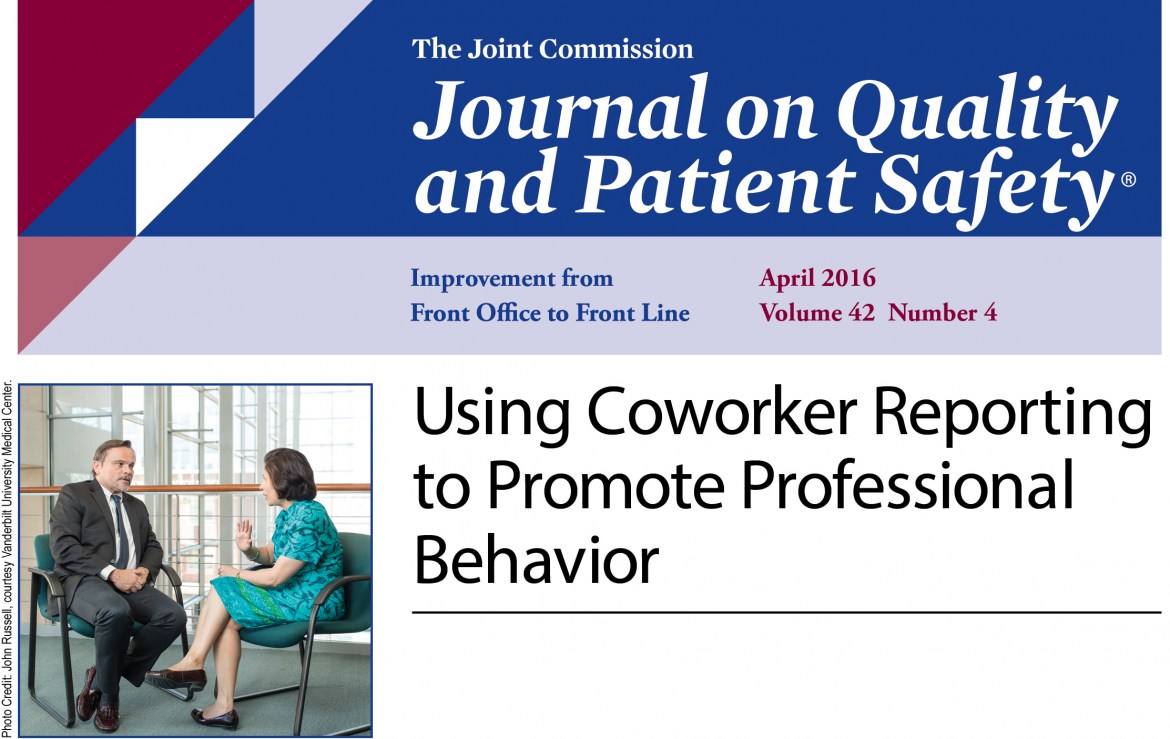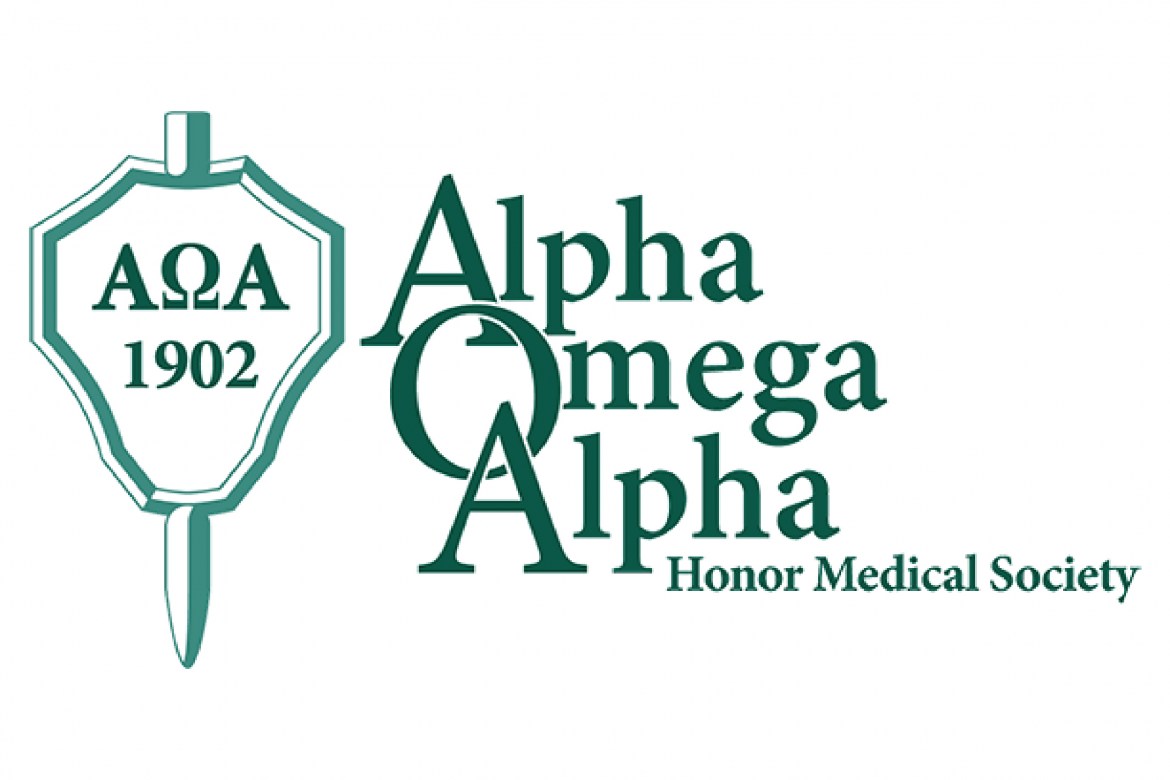![]() Sanford Health featured by AHRQ for their study on six years of PARS interventions at Sanford Health. Read more onthe AHRQ website. Advances in Patient Safety and Medical Liability looks at the planning, implementation and positive return on investment.
Sanford Health featured by AHRQ for their study on six years of PARS interventions at Sanford Health. Read more onthe AHRQ website. Advances in Patient Safety and Medical Liability looks at the planning, implementation and positive return on investment.
 Our article published in the Journal of Patient Safety March 15, 2018, Qualitative Content Analysis of Coworkers' Safety Reports of Unprofessional Behavior by Physicians and Advanced Practice Professionals, with lead author Dr. William Martinez, has been awarded the John A. Benson Jr,. MD Professionalism Article Prize in research by the American Board of Internal Medicine Foundation. Their press release from June 17, 2019 recognizes the importance of qualitative content analysis aimed to develop a valid and reliable taxonomy of coworker reports of alleged unprofessional behavior by physicians and advanced practice professionals from a patient safety reporting system at VUMC.
Our article published in the Journal of Patient Safety March 15, 2018, Qualitative Content Analysis of Coworkers' Safety Reports of Unprofessional Behavior by Physicians and Advanced Practice Professionals, with lead author Dr. William Martinez, has been awarded the John A. Benson Jr,. MD Professionalism Article Prize in research by the American Board of Internal Medicine Foundation. Their press release from June 17, 2019 recognizes the importance of qualitative content analysis aimed to develop a valid and reliable taxonomy of coworker reports of alleged unprofessional behavior by physicians and advanced practice professionals from a patient safety reporting system at VUMC.
 Dr. Lynn Webb represented the Vanderbilt Center for Patient and Professional Advocacy at the Australian and New Zealand Prevocational Medical Education Forum in Melbourne in November 2018. As Assistant Dean for Faculty Development and Assistant Professor of Medical Education and Administration at Vanderbilt University Medical Center, he shared CPPA's years of research on Promoting Professionalism and a Culture of Safety and Respect. The sessions included having a "Cup of Coffee Conversation" which promotes a culture of speaking up when concerns arise. The participants learned the tools necessary to address those concerns in a professional manner and techniques to build that into the culture of an organization.
Dr. Lynn Webb represented the Vanderbilt Center for Patient and Professional Advocacy at the Australian and New Zealand Prevocational Medical Education Forum in Melbourne in November 2018. As Assistant Dean for Faculty Development and Assistant Professor of Medical Education and Administration at Vanderbilt University Medical Center, he shared CPPA's years of research on Promoting Professionalism and a Culture of Safety and Respect. The sessions included having a "Cup of Coffee Conversation" which promotes a culture of speaking up when concerns arise. The participants learned the tools necessary to address those concerns in a professional manner and techniques to build that into the culture of an organization.
 Dr. William Cooper represented CPPA at the "What Patients Say" National Conference on October 11 and 12, 2018 in Chicago. What patients say in their own words is increasingly being used for many purposes for getting results above and beyond simple patient survey ratings. This conference featured research and national best practices about the wide variety of ways that the patients' concerns are being collected and used and how these efforts can be linked in powerful ways. Read more about this conference championed by Rush University Medical Center.
Dr. William Cooper represented CPPA at the "What Patients Say" National Conference on October 11 and 12, 2018 in Chicago. What patients say in their own words is increasingly being used for many purposes for getting results above and beyond simple patient survey ratings. This conference featured research and national best practices about the wide variety of ways that the patients' concerns are being collected and used and how these efforts can be linked in powerful ways. Read more about this conference championed by Rush University Medical Center.
 Robert Heaney, MD, (Chief Executive Officer of SLUCare; Professor and Senior Associate Dean of Saint Louis University School of Medicine; and Assistant Vice President for Medical Affairs, Saint Louis University and St. Louis University School of Medicine), and CPPA’s Jim Pichert presented ‘In Pursuit of Professionalism and A Culture of Safety and Respect’ to the AAMC Group on Faculty Affairs (GFA) Professional Development Conference on July 13, 2018 at the St. Louis Union Station Hotel in St. Louis, Missouri. Their presentation highlighted the roles patients and co-workers play when they observe and report healthcare professionals’ behaviors that are inconsistent with safety and effective teamwork. Such behaviors impact organizational culture, patient safety and the learning environment. The session described CPPA’s peer-based, graduated intervention approach to addressing these behaviors and essential elements of an infrastructure for supporting the effort.
Robert Heaney, MD, (Chief Executive Officer of SLUCare; Professor and Senior Associate Dean of Saint Louis University School of Medicine; and Assistant Vice President for Medical Affairs, Saint Louis University and St. Louis University School of Medicine), and CPPA’s Jim Pichert presented ‘In Pursuit of Professionalism and A Culture of Safety and Respect’ to the AAMC Group on Faculty Affairs (GFA) Professional Development Conference on July 13, 2018 at the St. Louis Union Station Hotel in St. Louis, Missouri. Their presentation highlighted the roles patients and co-workers play when they observe and report healthcare professionals’ behaviors that are inconsistent with safety and effective teamwork. Such behaviors impact organizational culture, patient safety and the learning environment. The session described CPPA’s peer-based, graduated intervention approach to addressing these behaviors and essential elements of an infrastructure for supporting the effort.

Dr. Gerald Hickson was honored to speak at Geisinger Health System as part of their Rock Star Speaker Series in March 2018. The Geisinger Rock Star Speaker Series seeks to bring people of influence across all industries to speak to Geisinger leadership; hearing from national thought leaders, government leaders, health care leaders, and scientific leaders to discuss topical health care issues and health policy. Other notable speakers include: Mark Miller, PhD, Marilyn Tavenner, Mandy Cohen, MD, Joe Selby, MD, Peter Orszag, PhD, Karen DeSalvo, MD, Rick Pollack and Tom Nickels, Shantanu Agrawal, MD.
 In May 2018, Dr. Tom Catron and Dr. April Kapu presented Workforce Safety: A Prerequisite for Joy in Work at the Institute for Healthcare Improvement Conference in Boston. They focused on promoting advanced practice professionals' accountability for safe, kind, reliable care. Recognizing the impact unprofessional behavior has on patient safety, clinical outcomes, and teamwork, means health care leaders require tools and reliable processes for identifying and addressing providers who undermine a safety culture. Using case-based, interactive teaching methods, group discussion, and practice exercises, participants learned proven tools and techniques for having "awareness" conversations to help advanced practice nurses and other medical professionals recognize an actionable pattern of slips and lapses in professional behavior so they have an opportunity to self-correct.
In May 2018, Dr. Tom Catron and Dr. April Kapu presented Workforce Safety: A Prerequisite for Joy in Work at the Institute for Healthcare Improvement Conference in Boston. They focused on promoting advanced practice professionals' accountability for safe, kind, reliable care. Recognizing the impact unprofessional behavior has on patient safety, clinical outcomes, and teamwork, means health care leaders require tools and reliable processes for identifying and addressing providers who undermine a safety culture. Using case-based, interactive teaching methods, group discussion, and practice exercises, participants learned proven tools and techniques for having "awareness" conversations to help advanced practice nurses and other medical professionals recognize an actionable pattern of slips and lapses in professional behavior so they have an opportunity to self-correct.
![]()
Dr. Hickson and Dr. Cooper conducted a workshop at the 29th annual Institute for Healthcare Improvement National Forum, revealing how Addressing Professionals Who Fail to Self-Regulate will contribute to improving safety and reliability in healthcare.
![]() Promoting Professionalism expands to New Zealand. The Cognitive Institute is now offering courses in the Promoting Professional Accountability Program in partnership with Vanderbilt CPPA as part of their Speak Up for Safety initiative.
Promoting Professionalism expands to New Zealand. The Cognitive Institute is now offering courses in the Promoting Professional Accountability Program in partnership with Vanderbilt CPPA as part of their Speak Up for Safety initiative.
The international journal, HealthManagement, featured Dr. Cooper's Pursuing a Culture of Safety in their August issue. The journal has a distribution to 87 countries world-wide.
Dr. Cooper points out, "Whereas much is written about professionalism and its noble tenets, far too little attention has been focused on understanding a critical component of professionalism—the commitment to group and self-regulation".

Nurses play an essential role in supporting professionalism. In a series of articles published by American Nurse Today, we looked at the benefits that nurses experience by sharing a "cup of coffee" and helping to promote accountability in their workplaces.
 Dr. William Cooper, Director of Vanderbilt's Center for Patient and Professional Advocacy was recently interviewed by HealthLeaders Media concerning our center's work in promoting professionalism in healthcare., More specifically, Dr. Cooper discusses our recently published work on how co-worker observations can promote greater professional accountability in healthcare organizations
Dr. William Cooper, Director of Vanderbilt's Center for Patient and Professional Advocacy was recently interviewed by HealthLeaders Media concerning our center's work in promoting professionalism in healthcare., More specifically, Dr. Cooper discusses our recently published work on how co-worker observations can promote greater professional accountability in healthcare organizations
 The Journal of the American Society of Anesthesiologists, Inc. featured CPPA in their Science, Medicine, and the Anesthesiologist publication in October, 2017: "Use of unsolicited patient observations to identify surgeons with increased risk for postoperative complications."
The Journal of the American Society of Anesthesiologists, Inc. featured CPPA in their Science, Medicine, and the Anesthesiologist publication in October, 2017: "Use of unsolicited patient observations to identify surgeons with increased risk for postoperative complications."
 Using Coworker Observations to Promote Accountability for Disrespectful and Unsafe Behaviors by Physicians and Advanced Practice Professionals is the cover story of the April 2016 issue of The Joint Commission Journal of Quality & Patient Safety. Our latest publication gives readers a practical roadmap for implementing a program for soliciting co-worker observations and an infrastructure for dealing with identified issues. We have also been honored by an accompanying editorial by Richard C. Boothman, JD. In addition, Becker's Hospital Review provides a summary of the work as well as links to The Joint Commission Journal article HERE
Using Coworker Observations to Promote Accountability for Disrespectful and Unsafe Behaviors by Physicians and Advanced Practice Professionals is the cover story of the April 2016 issue of The Joint Commission Journal of Quality & Patient Safety. Our latest publication gives readers a practical roadmap for implementing a program for soliciting co-worker observations and an infrastructure for dealing with identified issues. We have also been honored by an accompanying editorial by Richard C. Boothman, JD. In addition, Becker's Hospital Review provides a summary of the work as well as links to The Joint Commission Journal article HERE
 Promoting Professionalism expands to New Zealand. The Cognitive Institute is now offering courses in the Promoting Professional Accountability Program in partnership with Vanderbilt CPPA as part of their Speak Up for Safety initiative.
Promoting Professionalism expands to New Zealand. The Cognitive Institute is now offering courses in the Promoting Professional Accountability Program in partnership with Vanderbilt CPPA as part of their Speak Up for Safety initiative.
The international journal, HealthManagement, featured Dr. Cooper's Pursuing a Culture of Safety in their August issue. The journal has a distribution to 87 countries world-wide.
Dr. Cooper points out, "Whereas much is written about professionalism and its noble tenets, far too little attention has been focused on understanding a critical component of professionalism—the commitment to group and self-regulation".

Nurses play an essential role in supporting professionalism. In a series of articles published by American Nurse Today, we looked at the benefits that nurses experience by sharing a "cup of coffee" and helping to promote accountability in their workplaces.
 Dr. William Cooper, Director of Vanderbilt's Center for Patient and Professional Advocacy was recently interviewed by HealthLeaders Media concerning our center's work in promoting professionalism in healthcare., More specifically, Dr. Cooper discusses our recently published work on how co-worker observations can promote greater professional accountability in healthcare organizations
Dr. William Cooper, Director of Vanderbilt's Center for Patient and Professional Advocacy was recently interviewed by HealthLeaders Media concerning our center's work in promoting professionalism in healthcare., More specifically, Dr. Cooper discusses our recently published work on how co-worker observations can promote greater professional accountability in healthcare organizations
 The Journal of the American Society of Anesthesiologists, Inc. featured CPPA in their Science, Medicine, and the Anesthesiologist publication in October, 2017: "Use of unsolicited patient observations to identify surgeons with increased risk for postoperative complications."
The Journal of the American Society of Anesthesiologists, Inc. featured CPPA in their Science, Medicine, and the Anesthesiologist publication in October, 2017: "Use of unsolicited patient observations to identify surgeons with increased risk for postoperative complications."
 Using Coworker Observations to Promote Accountability for Disrespectful and Unsafe Behaviors by Physicians and Advanced Practice Professionals is the cover story of the April 2016 issue of The Joint Commission Journal of Quality & Patient Safety. Our latest publication gives readers a practical roadmap for implementing a program for soliciting co-worker observations and an infrastructure for dealing with identified issues. We have also been honored by an accompanying editorial by Richard C. Boothman, JD. In addition, Becker's Hospital Review provides a summary of the work as well as links to The Joint Commission Journal article HERE
Using Coworker Observations to Promote Accountability for Disrespectful and Unsafe Behaviors by Physicians and Advanced Practice Professionals is the cover story of the April 2016 issue of The Joint Commission Journal of Quality & Patient Safety. Our latest publication gives readers a practical roadmap for implementing a program for soliciting co-worker observations and an infrastructure for dealing with identified issues. We have also been honored by an accompanying editorial by Richard C. Boothman, JD. In addition, Becker's Hospital Review provides a summary of the work as well as links to The Joint Commission Journal article HERE
Our good partners at Stanford Health Care recently published an article about addressing patient dissatisfaction. It features our PARS process and was the cover article for the November 2014 issue of the Joint Commission Journal on Quality and Patient Safety (Joint Commission Journal on Quality and Patient Safety, Volume 40, Number 11, November 2014, pp. 484): Creating a Patient Complaint Capture and Resolution Process to Incorporate Best Practices for Patient-Centered Representation
 An interview with Dr. Gerald Hickson, MD is featured in the ED Legal Letter, a resource for Emergency Medicine Malpractice Prevention and Risk Management. Read the articles, "Identify, Counsel EPs Frequently Targeted in Med/Mad Suites", and "Don't View Patient Complaints as Annoyances"
An interview with Dr. Gerald Hickson, MD is featured in the ED Legal Letter, a resource for Emergency Medicine Malpractice Prevention and Risk Management. Read the articles, "Identify, Counsel EPs Frequently Targeted in Med/Mad Suites", and "Don't View Patient Complaints as Annoyances"
 We are pleased to announce that the Alpha Omega Alpha Honor Medical Society has recently named the Vanderbilt Center for Patient and Professional Advocacy (CPPA) as the sole recipient of the 2016 Edward D. Harris Professionalism Award. Created in 2009, the Edward D. Harris Professionalism Award recognizes and honors outstanding programs that model best practices in medical professionalism among physicians nationally and internationally, said Richard L. Byyny, MD, FACP, executive director. Please click here to access the AOA Honor Medical Society website and read the full article.
We are pleased to announce that the Alpha Omega Alpha Honor Medical Society has recently named the Vanderbilt Center for Patient and Professional Advocacy (CPPA) as the sole recipient of the 2016 Edward D. Harris Professionalism Award. Created in 2009, the Edward D. Harris Professionalism Award recognizes and honors outstanding programs that model best practices in medical professionalism among physicians nationally and internationally, said Richard L. Byyny, MD, FACP, executive director. Please click here to access the AOA Honor Medical Society website and read the full article.
